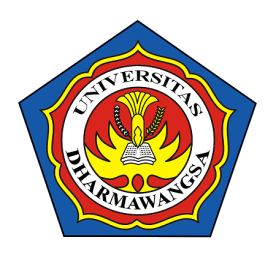Penerapan Metode Complex Proportional Assessment (Copras) Dalam Pemilihan Mahasiswa Terbaik di Kelas 4-3
DOI:
https://doi.org/10.70340/jirsi.v4i1.172Keywords:
copras method, selection of the best students, performance evaluationAbstract
This research aims to apply the COPRAS (Complex Proportional Assessment of Alternatives with Ranking) method in selecting the best students in class 4-3 at Harapan University, Medan. The COPRAS method is used to integrate various assessment criteria, such as GPA, attendance, attitude, activeness and discipline, to produce an objective and transparent evaluation. The research results show that the application of this method succeeded in providing an effective solution in determining the best students. Based on the analysis results, Rili Aditya obtained the highest score with a utility value of 100%, so he was declared the best student among the other candidates. The COPRAS method not only increases assessment accuracy, but also encourages the creation of healthy competition among students. By implementing a decision support system based on the COPRAS method, educational institutions can evaluate student performance more consistently and effectively
Downloads
References
Astin, A. W. (1993). "What Matters in College: Four Critical Years Revisited." San Francisco: Jossey-Bass.
Basu, R. (2014). Performance Measurement and Management. Springer.
Gupta, S. & Kapoor, M. (2020). "Objective Assessment in Higher Education: Challenges and Solutions." Journal of Educational Assessment and Policy
A. D. U. Siregar, N. A. Hasibuan, and F. Fadlina, “Sistem Pendukung Keputusan Pemilihan Sales Marketing Terbaik di PT. Alfa Scorph Menggunakan Metode COPRAS,” J. Sist. Komput. dan Inform., vol. 2, no. 1, pp. 62–68, 2020.
Vaidya, O. S., & Kumar, S. (2006). "Analytic Hierarchy Process: An Overview of Applications." European Journal of Operational Research, 169(1), 1-29. (Berisi perbandingan COPRAS dengan metode lain).
Ishizaka, A., & Labib, A. (2011). "Review of Multi-Criteria Decision Analysis Tools." Journal of Operational Research Society.
Mardani, A., Jusoh, A., & Zavadskas, E. K. (2017). "Multiple Criteria Decision-Making Techniques and Applications: A Review." Sustainability, 9(10), 1-25.
Sari, R. F., & Supriyadi, S. (2020). "Penerapan Metode COPRAS dalam Penentuan Mahasiswa Berprestasi di Perguruan Tinggi." Jurnal Ilmiah Pendidikan dan Pembelajaran, 4(2), 123-130.
Metode COPRAS (Complex Proportional Assessment) dapat digunakan untuk pengambilan keputusan dengan memaksimalkan dan meminimalkan nilai kriteria," Jurnal Teknologi dan Sistem Komputer, vol. 8, no. 2, 2021.
Sistem Pendukung Keputusan Evaluasi Kinerja Pegawai berbasis web menggunakan metode COPRAS dapat mengatasi masalah penilaian yang subjektif," Jurnal Sistem Informasi, vol. 16, no. 1, 2022
Metode Complex Proportional Assessment (COPRAS) memiliki kemampuan untuk memperhitungkan kriteria positif dan negatif," Jurnal Pendidikan dan Pembelajaran, vol. 5, no. 4, 2024.
Schunk, D. H., & Zimmerman, B. J. (2008). "Motivation and Self-Regulated Learning: Theory, Research, and Applications." New York: Routledge.
Pradana, A., Lestari, Y. D., & Khairani, M. (2020). Sistem Pendukung Keputusan Dalam Memilih Bibit Jambu Madu Terbaik Dengan Menggunakan Metode MOORA DAN SAW. Algoritma :
Jurnal Ilmu Komputer Dan Informatika, 4 (2). https://doi.org/10.30829/algoritma.v4i2.8454
Hanafiah, A., Arta, Y., Nasution, H. O., & Lestari, Y. D. (2023). Penerapan Metode Recurrent Neural Network dengan Pendekatan Long Short-Term Memory (LSTM) Untuk Prediksi Harga Saham. Bulletin of Computer Science Research, 4(1), 27–33. https://doi.org/10.47065/bulletincsr.v4i1.321
Lestari, Y. D., & Perdana, A. (2020). Penerapan Metode Waspas dalam Menentukan Pemilihan Peminatan pada Program Studi Teknik Informatika. Jurnal Ilmu Komputer Dan Sistem …, 17(2), 2580–2582.
https://www.jurnal.harapan.ac.id/index.php/Jikstra/article/view/233%0Ahttps://www.jurnal.harap an.ac.id/index.php/Jikstra/article/download/233/137
Downloads
Published
Issue
Section
License
Copyright (c) 2025 Annisa Syaharani, Annisa Putri, Rostika Tnunay, Yuyun Dwi Lestari

This work is licensed under a Creative Commons Attribution-ShareAlike 4.0 International License.









